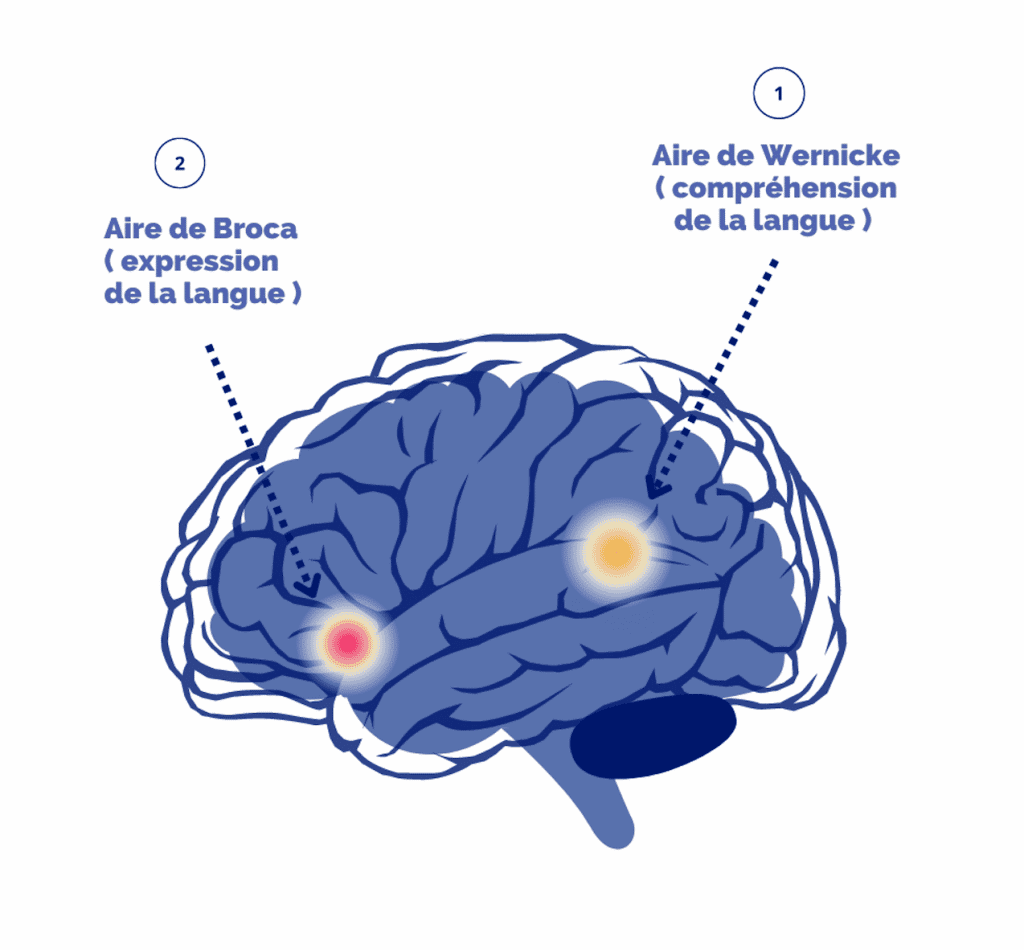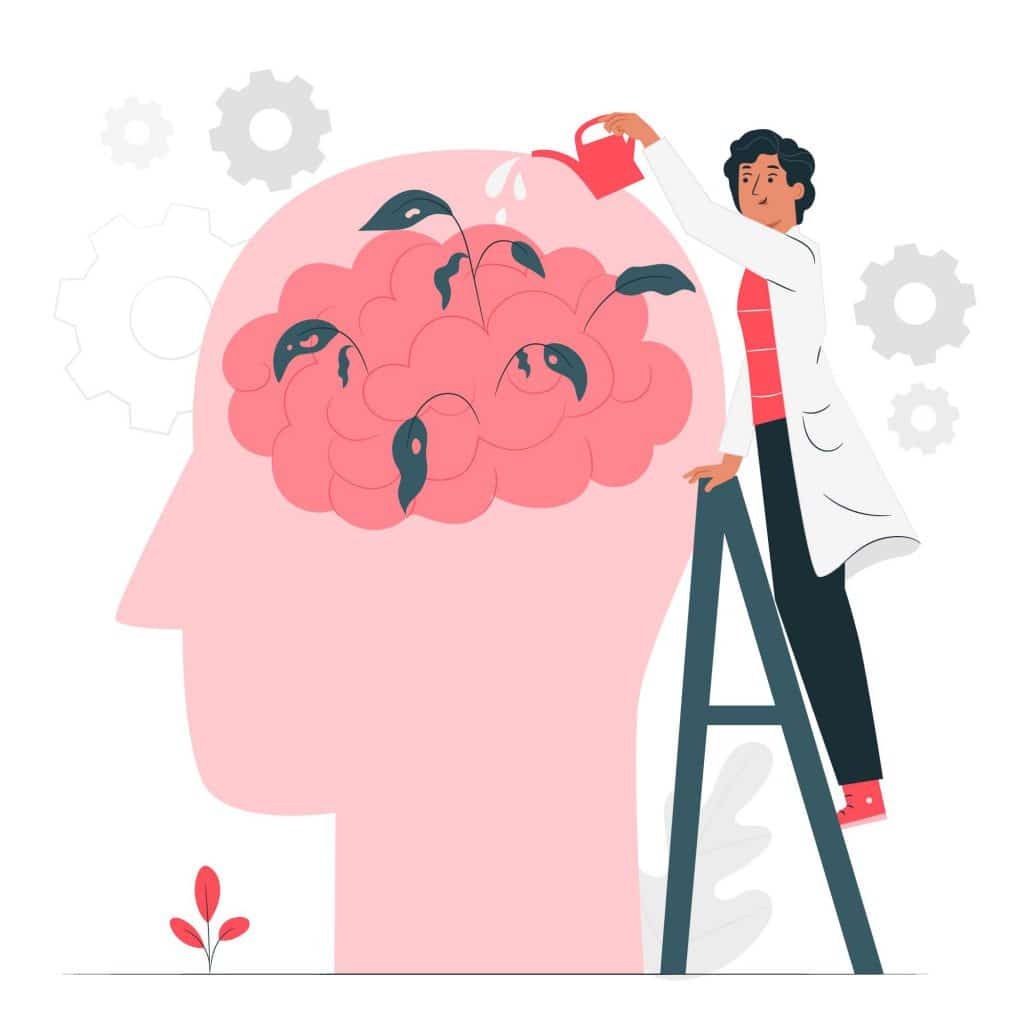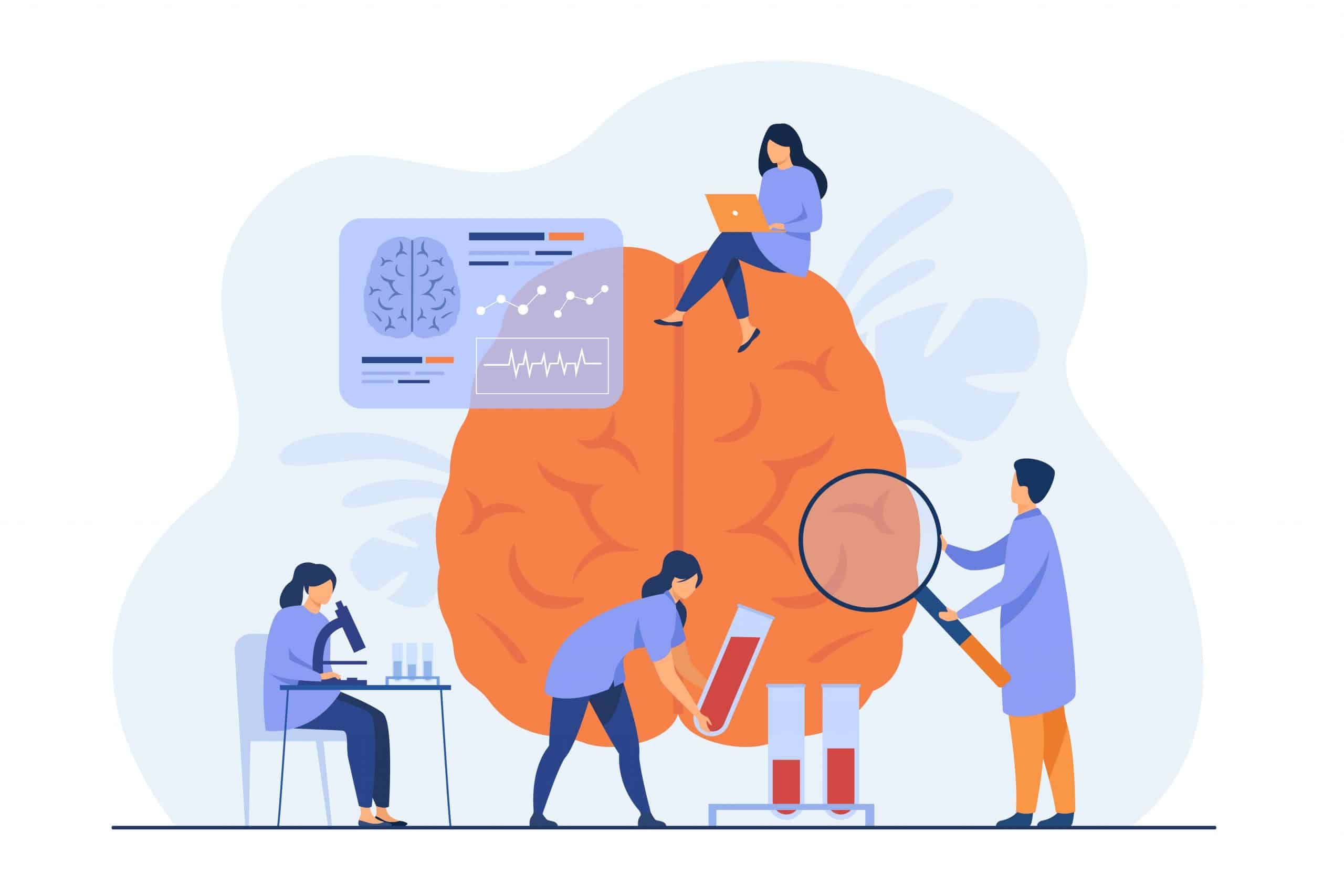We are faced with a multilingual reality and yet only 20% of French people are bilingual. Some multilingual people describe having a more complete and detailed view of life with a different way of thinking. Learning a language has many benefits. From a professional point of view, be proficient in English enables you to grow your career.
But what effect does learning one or more languages have on your brain?
To answer this, let's turn to the science that has provided an accurate close up of what happens inside the brain when you learn a language!
What happens in our brains when we learn a language?
When we learn a language, two areas in our brain become active. Two complementary areas: Wernicke and Broca, which allow a person to understand and speak a language.
Wernicke's and Broca's areas in the brain
Two specialists have analysed what happens inside the brain during the learning of a language, two areas are activated during this phase:

- The Wernicke area, named after the German neurologist Carl Wernicke, compartmentalises and dissociates each language, allowing the brain to understand a language.
- The Broca area (by French neurosurgeon Paul Broca) does not distinguish between languages: it is the area that allows speaking a language.
These two areas complement each other. The German neurologist made the following observation: subjects with connections in Wernicke's area spoke without having a coherent speech and vice versa.
Both areas are present in the left hemisphere, which is one of the asymmetrically processed functions in the brain. When learning a language, Wernicke's area first takes over the information before relaying it to Broca's area through the nerve fibres.
The Broca area in a child's brain
For a bilingual child, his or her brain is, from a very early age, a little different from others, particularly in the Broca area. In fact, for languages learned simultaneously, the Broca area makes no distinction, which would explain why these children have absolutely no difficulty in switching from one language to another, in the same sentence. As these two different areas are involved in a specific order, it is possible to understand a language without speaking it!
What scientists say about language learning

Scientists are unanimous in their opinion that learning several languages makes you more intelligent. The more specific areas of the brain are used, the more they will grow and strengthen. To demonstrate this fact, Ping Li, a psychologist at the University of Pennsylvania, decided to use language learning to stimulate high intellectual activity. He then analysed the brain evolution by MRI of 39 English speakers who had received Chinese vocabulary lessons for 6 weeks. These analyses revealed a neurological difference between the first and last in the Chinese class.
The more successful a student was at retaining information, the more new neurological connections were shown on the MRI. A better integrated brain network is more flexible, and more efficient... This makes learning a language even easier over time!
“The brain is much more pliable than previously thought" .
Ping Li
Learning a second language
A similar study, conducted in 2012, indicates that when learning a second language, the cortical thickness on the volume of the hippocampus increases considerably: physical transformation!
Grey matter and white matter (myelin) then increases. This is because grey matter is a strategic area of the brain, where most information is processed. By training regularly to practice another language, it becomes much denser and helps us to be more intelligent. White matter is a fatty substance covering the axons. Its role is to pass messages between neurons.
When learning a language, information therefore travels much faster, passing information through the neural network even faster than a monolingual person.
Learning a foreign language without being bilingual then develops the brain's grey matter, boosts speed within the neurological network and, overall, leads to a complete restructuring of the brain.

Translating this impact into our daily lives.
In addition, learning a new language changes our daily lives In a globalised world, multilingualism helps children and future generations to cope with a constantly changing society. The benefits are many and often learning to speak more than one language improves decision-making skills. Reasoning is faster and prioritising ideas is easier. Similarly, multitasking is facilitated, as are other cognitive skills, such as :
- concentration
- consistency in completing a task
- memorisation
- creativity
It would also have a real anti-ageing effect on the brain, intensifying its ability to generate, delay, as well as combat severe mental diseases, such as Alzheimer's.










